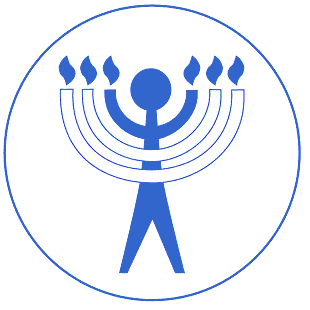The Jewish Humanist, September 1993
I have just returned from Russia. Having been there four times before I was amazed by the radical transformation taking place. Capitalism and democracy may be having a hard time winning their victory. But Communism is dead.
Do not get me wrong. The legacy of Communism is everywhere. Acres and acres of decaying gulag-style apartment buildings fill the urban landscape. Families stuffed into cubbyhole fiats, without the opportunities of privacy or comfort, remain the norm. Surly bureaucratic personnel still fill the offices and the stores. Aging junk heaps of factories still belch their pollution into the air. Millions of red stars and hammers and sickles are still embedded in the stone of thousands of public buildings.
But the changes are dramatic. The red flags and Communist slogans are gone. Consumer goods from the West are everywhere. The streets are filled with the energy of flourishing kiosks and private enterprise. People are talky, pushy and defiant. Book stores and newsstands are filled with publications that people really want to read. Jaywalking and traffic jams are becoming commonplace. Nightlife, billboard advertising and fashionable dress are flourishing. The renovation of former beauty is everywhere. Public complaining is loud, raucous and outrageous.
Of course, transitions bring their terrible problems. Beggars now fill the streets. Gangsters and violent crime, emerging from the underworld of the old black market, make urban life unsafe. Prices are high. Unemployment is growing. The differences between those who make it and those who do not grow wider. Two governments, one presidential and one congressional, vie for power. The new ruble hovers on the edge of credibility. Sex shops and psychics are thriving.
If stability can be achieved, Russia is a land of opportunity for Western “investors”. Undeveloped mineral resources abound. Cheap educated labor is eager to play Mexico to Germany’s America. Confused survivors of Communist indoctrination are open to the missionary work of American fundamentalist religion. An admiration for all things Western, from MacDonald’s to rock music, is part of youthful ambition.
The turmoil in Russia worries everybody. But, except for the diehard Marxists and Stalinists who hold their pathetic rallies in a few public squares, almost nobody you talk to wants to go back to what was. Mumbling and grumbling are commonplace. Suffering is real. Yet the rightwing nationalists and fascists have been unable to mobilize a credible opposition. The right is hopelessly divided and ineffective. Monarchists and racists and anti-Semites cannot seem to get their act together. Even an opportunistic alliance with conservative Communists is a failure. They are not able to win elections, recruit the military, or to win wide public support. Even the Pamyat party, which frightened everybody, is falling apart. In the end, nobody has a real alternative to Yeltsin. And that’s why, with all his faults, buffoonery and indecision, he remains in power.
In the midst of all this uncertainty are two million Jews (and, counting the fourteen other republics of the former Soviet Union maybe three million). Their numbers have been depleted by emigration to America and Israel. But, strangely enough, for every Jew who leaves, another mysteriously appears to take his place. The hidden Jews of intermarriage and assimilation are surfacing all the time.
The Jews of Russia are free to leave for Israel. But they are not moving right now. On the whole professional and well-educated, they are reluctant to move to a Jewish state that can only provide them with the opportunities of taxi driving, street cleaning and unemployment. Although they are uncomfortable with the persistent anti-Semitism, some of them are deeply attached to Russian culture and are reluctant to leave Russia for an environment where they will be struggling foreigners. Listening to them is listening to all the ambiguities and ambivalence that are part of Russian Jewish identity.
My most exciting experience of this visit was my encounter with sixty, Jewish students from over thirty communities of Russia and the former Soviet Union, who had come to Moscow for a five day seminar on Humanistic Judaism. The seminar was sponsored by the Eurasian Section of the International Institute for Secular Humanistic Judaism. The purpose was to train lecturers for our movement, who would serve as spokespersons of our unique approach to Jewish identity. The organizer was Simyon Avgustevich, the director of the Institute in Moscow.
Simyon is an extraordinary man of great energy and determination. Trained as a psychologist In Saratov, a Russian city on the Volga, he became part of the Jewish reawakening that accompanied the fall of Communism. Chosen as an education officer for the newly founded Vaad (Council of Jewish Communities) he encountered Humanistic Judaism through the energetic work of Zev Katz, professor of Russian studies at the Hebrew University and the Israeli Dean of the International Institute. Over the past two years Zev and he have visited dozens of Jewish communities all over Russia and the other “Soviet” republics. Out of this whirlwind effort emerged 35 small Humanistic Jewish associations which are now federated, into a larger regional association.
The students who came to Moscow were of all ages, but primarily young. Most of them grew up in assimilationist backgrounds, where neither Yiddish nor Hebrew nor Jewish culture were present. But all of them were eager to discover their ethnic roots and to affirm their Jewishness in a way that was consistent with their secular convictions. Assaulted by the prevailing confusion and by the relentless determination of the new Orthodox Jewish missionaries to win the hearts of Russian Jewry, they had opted for Humanistic Judaism and were eager to learn more about what that commitment meant. I was overwhelmed by their sincerity, enthusiasm and desire to learn I was also distressed by the economic hardships which they daily face.
If democracy and incipient capitalism survive in Russia, there will be a future for a vital Jewish community and for a vital Russian/Eurasian Humanistic Judaism. Hopefully, in the year to come we can find brother and sister communities in North America, Europe and Israel for the new Humanistic communities in the former Soviet Union. Perhaps San Diego would like to pair with Vitebsk or Detroit with Minsk or Brussels with Kiev, or Boston with Saratov.
At the end of September 1994, the fifth biennial conference of the Federation of Secular Humanistic Jews will be held in Moscow. It will be a wonderful opportunity for Humanistic Jews, from all over the world, to express their support for the rebirth of Secular Humanistic Judaism in Russia.
I hope that you will join me in this wonderful “pilgrimage of hope.”


